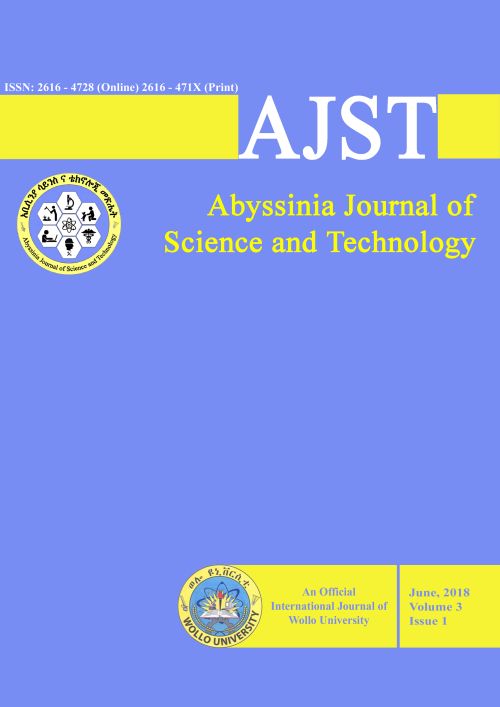Main Article Content
A pragmatic comparison of smallholder farmers’ perceptions and attitudes towards integration of trees in farmed landscapes in North Eastern Ethiopia
Abstract
The study was conducted in north eastern Ethiopia to describe the status of woody plants integration in smallholders’ farms and compare the smallholder farmers’ perceptions and attitudes towards tree integration. Reconnaisance study was made between April and September, 2015 to collect preliminary information. Plant specimens were collected, identified and deposited at the Herbarium in Wollo University. Ethnobotanical data were collected using semi-structured interview schedule from 623 informants selected by multistage sampling. Free lists of common woody plants were drawn along their perceived uses. The data were anlyzed using SPSS version 20, R and Climatol. Significant differences between means were tested using indepenndent t-test and ANOVA. In total, 72 plant species belonging to 61 genera and 40 families were recorded with corresponding perceived uses. More mentions of plant species and uses with less significant mean differences (P < 0.05) were recorded in South Wollo Administrative Zone, Woina Dega and those with higher literacy levels. So does with males than females, rich wealth group and elder informants with no and significant differences respectively. The findings indicate the need for mainstreaming tree integration activities with emphasis on women, poor, illiterate and younger households, and prioritizing the Dega agroecological zone and administrative zones with higher moisture stress. Uncertainities have surfaced about building confidence on tree ownership rights and level of stakeholders’ support for tree integration. Awareness creation, providing support mainly for specific groups, prioritizing agroecological and administrative zones, avoiding tenure insecurity would be crucial for sustainable tree integration.







